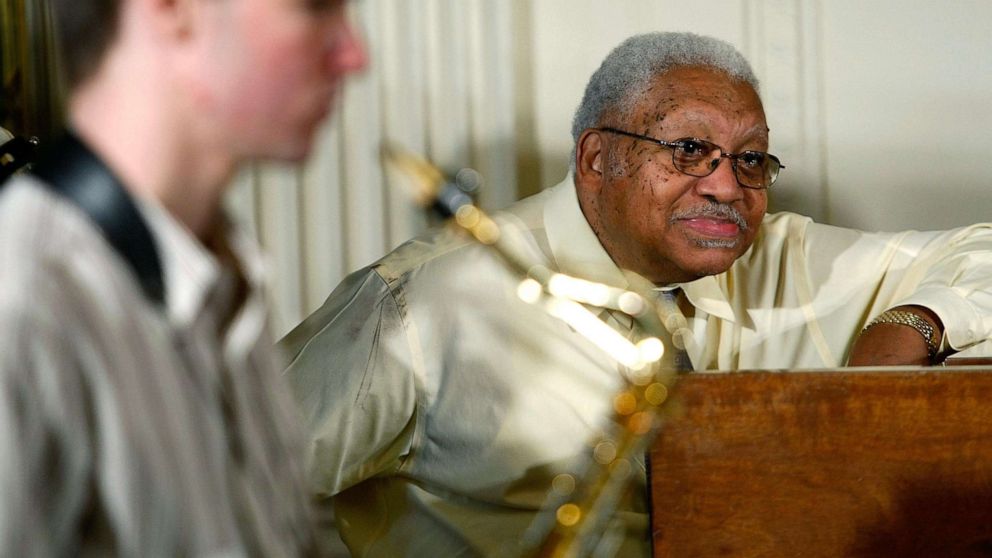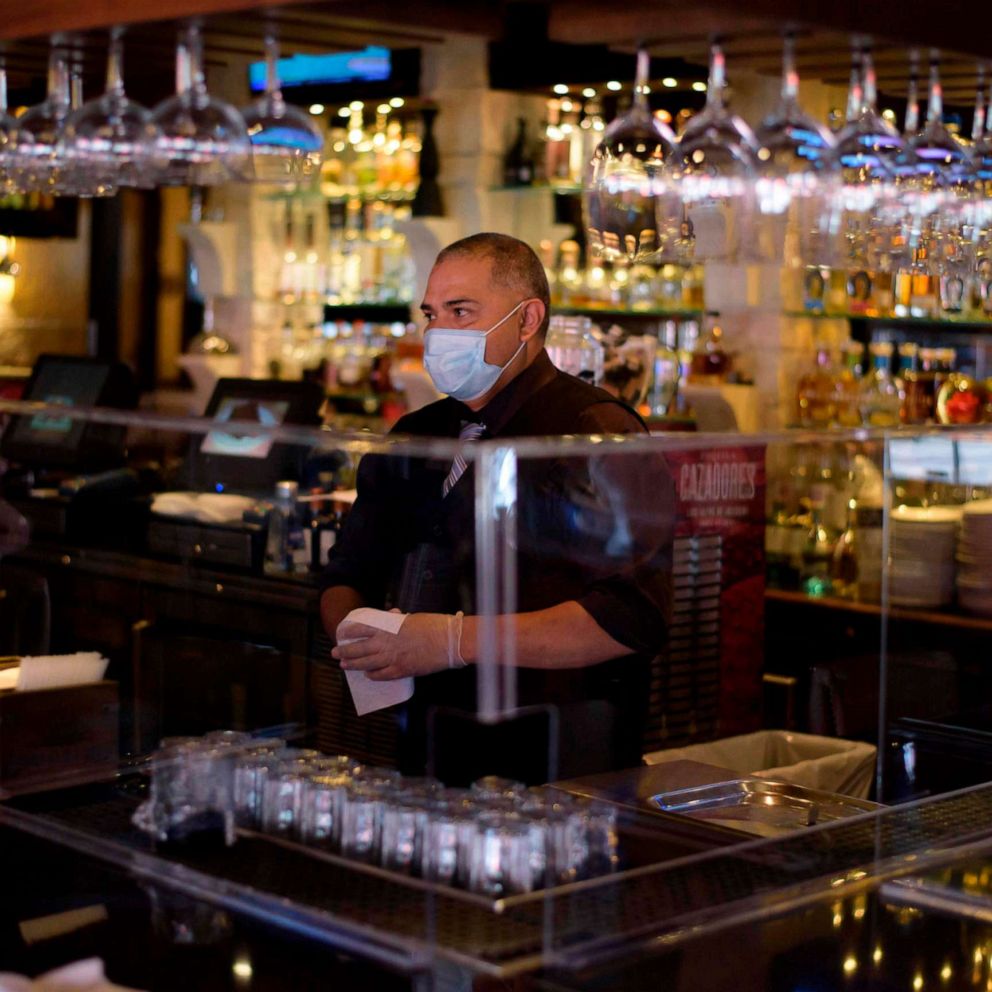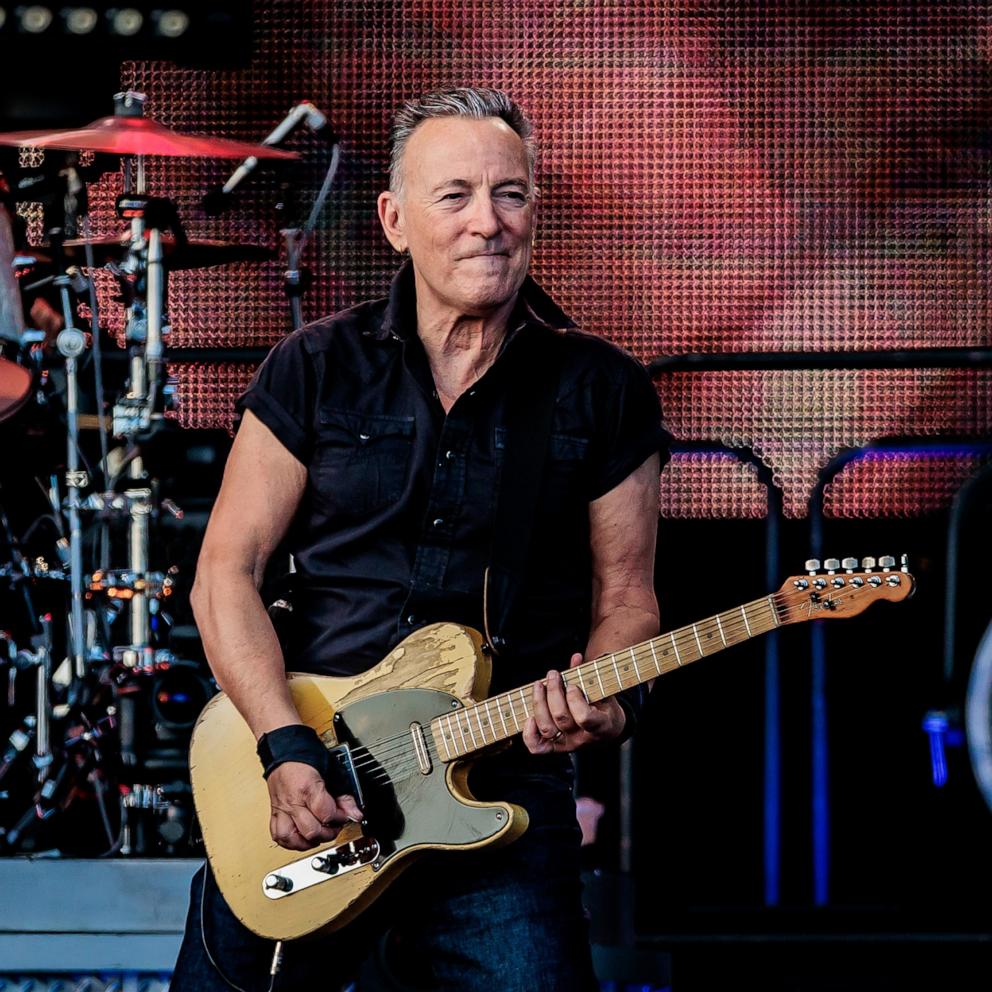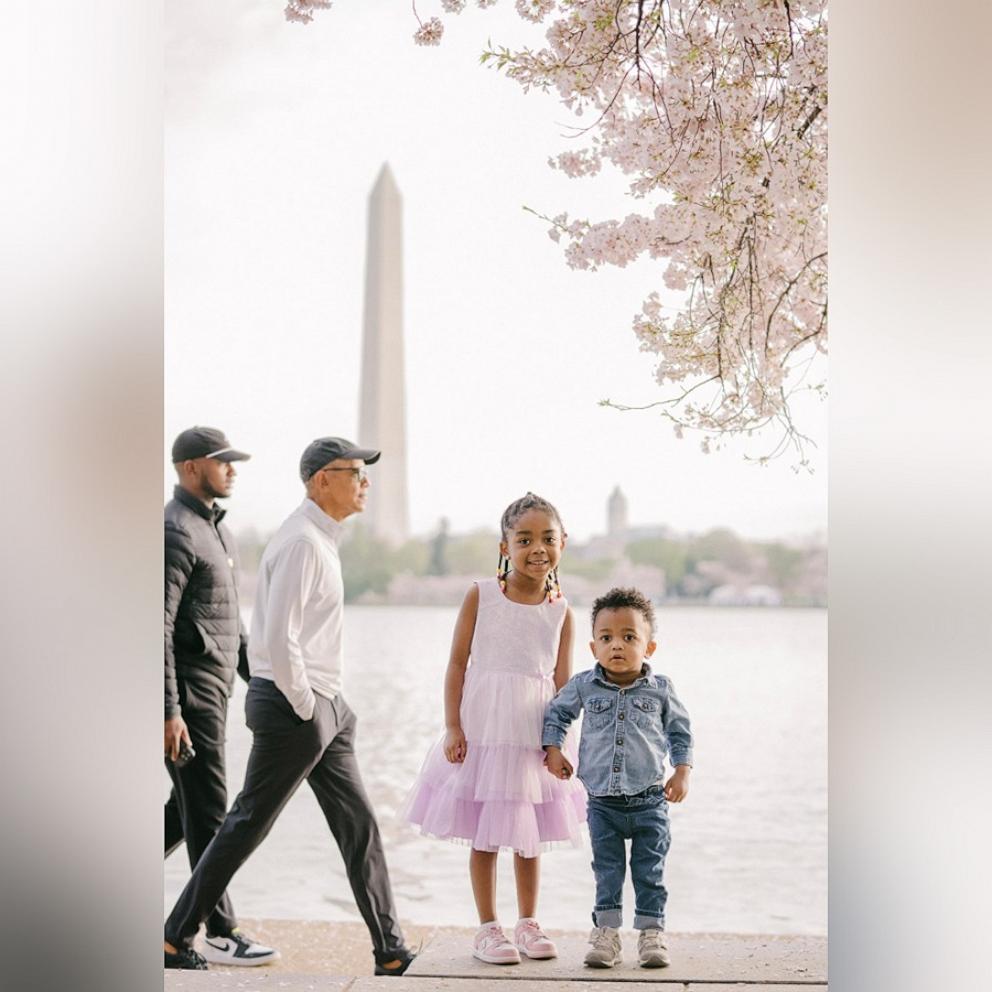Human toll of COVID-19 touches every corner of the jazz world
Jazz, a genre with deep roots in the African American community, has always told the stories of pain and reckoning in America. As the death toll from novel coronavirus surpasses 110,000 in the U.S., the ache of the pandemic has touched every corner of the jazz world.
More than a dozen influential jazz and blues musicians have died after a battle with the coronavirus, according to the Jazz Foundation of America.
The disproportionate impact that the virus has had on older people and African Americans "certainly is apparent in the jazz world," Jazz Foundation of America Executive Director Joseph Petrucelli told ABC News.
"The human toll has been devastating and heartbreaking," Petrucelli said, adding that several other greats have died due to suspected cases of COVID-19.
For Grammy-winning trumpeter Sean Jones, who has known or shared the stage with a number of legends who died, the loss is deeply personal.
"We've lost a lot of heroes, and I heard a quote the other day that every time you lose a legend, you lose a library," Jones, who is also a jazz educator at the Peabody Institute in Baltimore, told ABC News' Kyra Phillips. "Just speaking to those folks, just hearing the stories, what's gone down over the years -- we can never get that back."
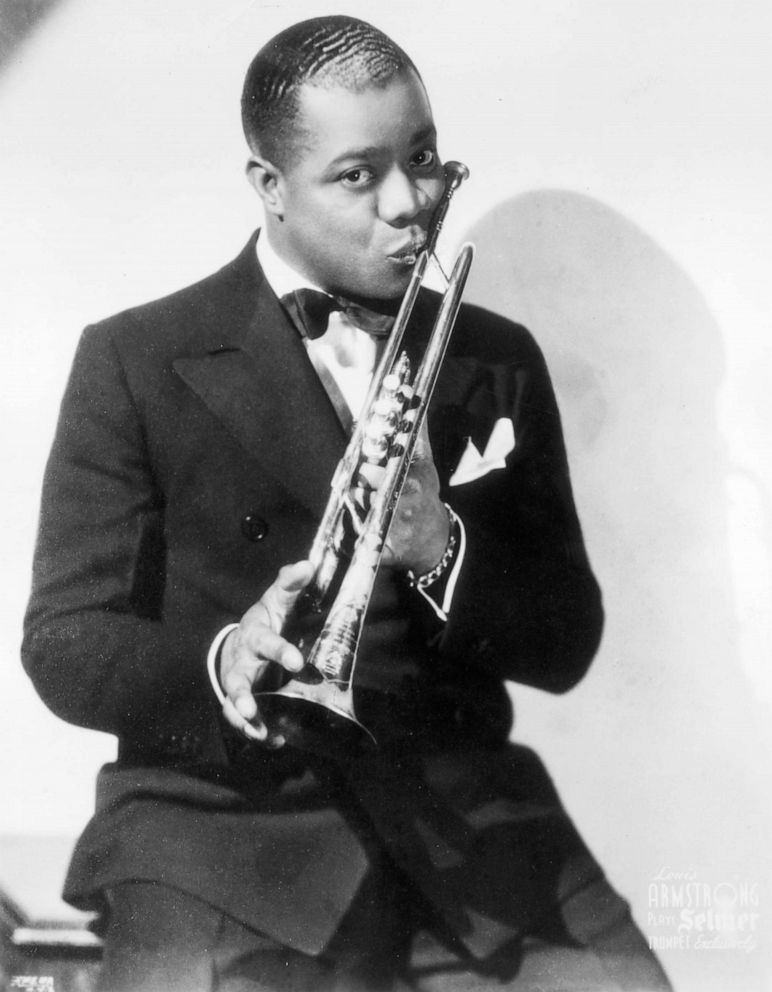
There was another deadly virus that struck the jazz community more than 100 years ago -- the 1918 influenza pandemic. It tore through New Orleans, and by some small miracle, 17-year-old Louis Armstrong -- one of the most legendary musicians in the world and one of the most influential jazz musicians ever -- survived.
Armstrong reflected on the Spanish flu pandemic and his experience nursing others back to health as a teenager in his book, "Satchmo: My Life in New Orleans," an excerpt of which was shared by the Louis Armstrong House Museum in April.
Asked what would have happened if Armstrong did not survive the pandemic, Jones said, "Wow. What would happen if salt was never part of the equation of food? You wouldn't know food that way that you know it now without that element, without salt."
"Louis Armstrong is the salt of jazz, he's the foundation. So imagine something that important not existing. Would you have elements of the music? Sure you would. But that spirit wouldn't be there," he added.
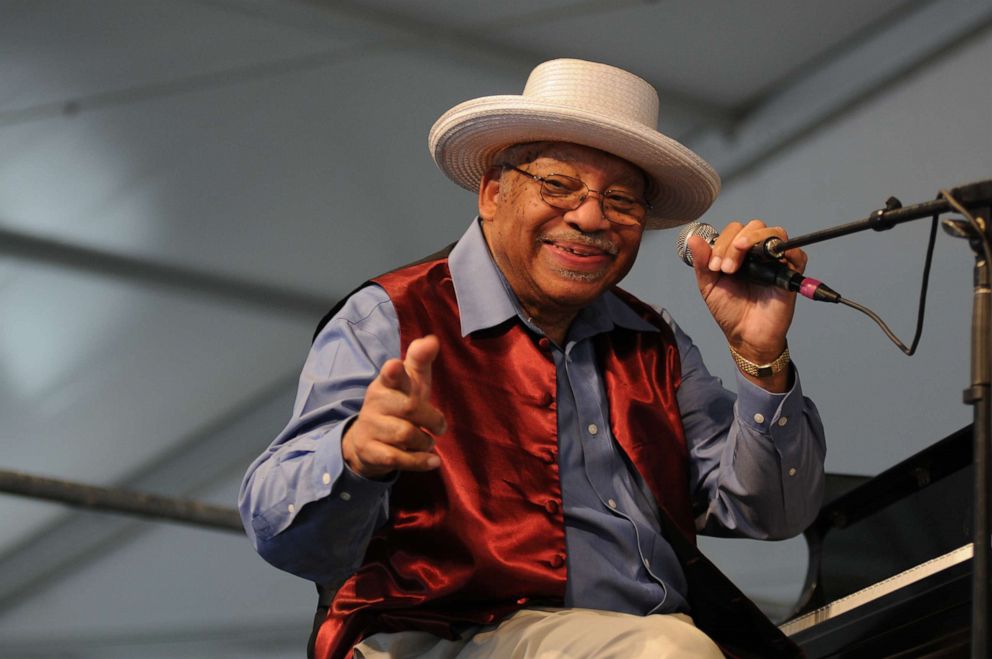
Among those who died from complications due the coronavirus are New Orleans jazz legend Ellis Marsalis -- a renowned pianist, educator and patriarch of one of New Orleans' most prominent jazz families. Marsalis died on April 1 in New Orleans at the age of 85.
Four of Marsalis' sons -- Branford, Wynton, Delfeayo and Jason, also became jazz musicians.
"My dad was a giant of a musician and teacher, but an even greater father. He poured everything he had into making us the best of what we could be," wrote Branford Marsalis in a statement.
New Orleans Mayor LaToya Cantrell lauded Ellis Marsalis as a "legend."
"He was the prototype of what we mean when we talk about New Orleans jazz. ... He was a teacher, a father, and an icon -- and words aren't sufficient to describe the art, the joy and the wonder he showed the world," she said. "This loss cuts us deeply."
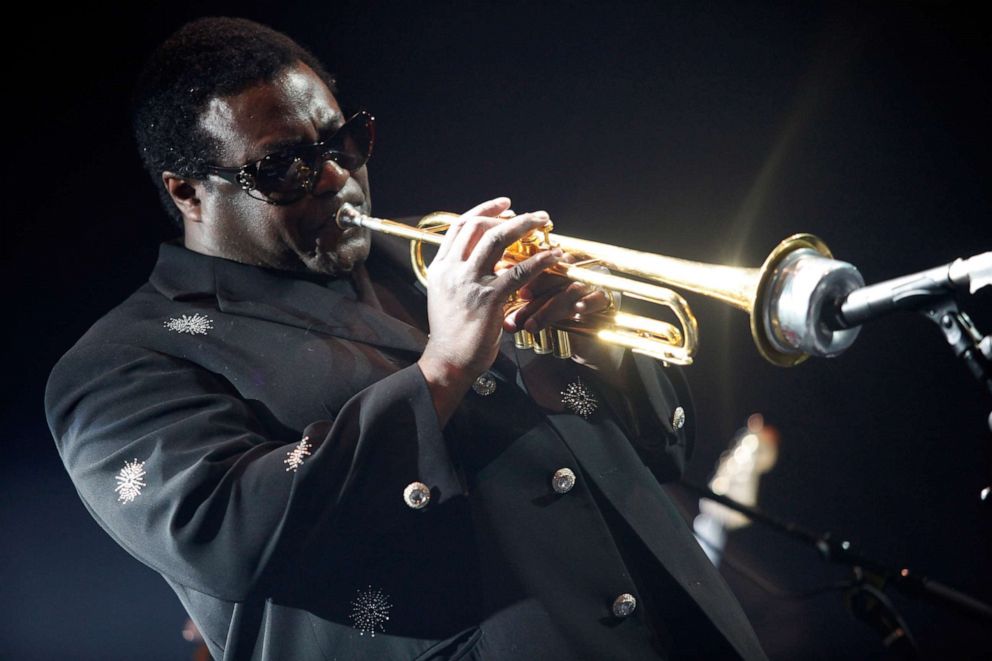
Wallace Roney, a Grammy-winning jazz trumpeter who studied with jazz legends Miles Davis and Dizzy Gillespie, died on March 31 in Paterson, New Jersey. He was 59.
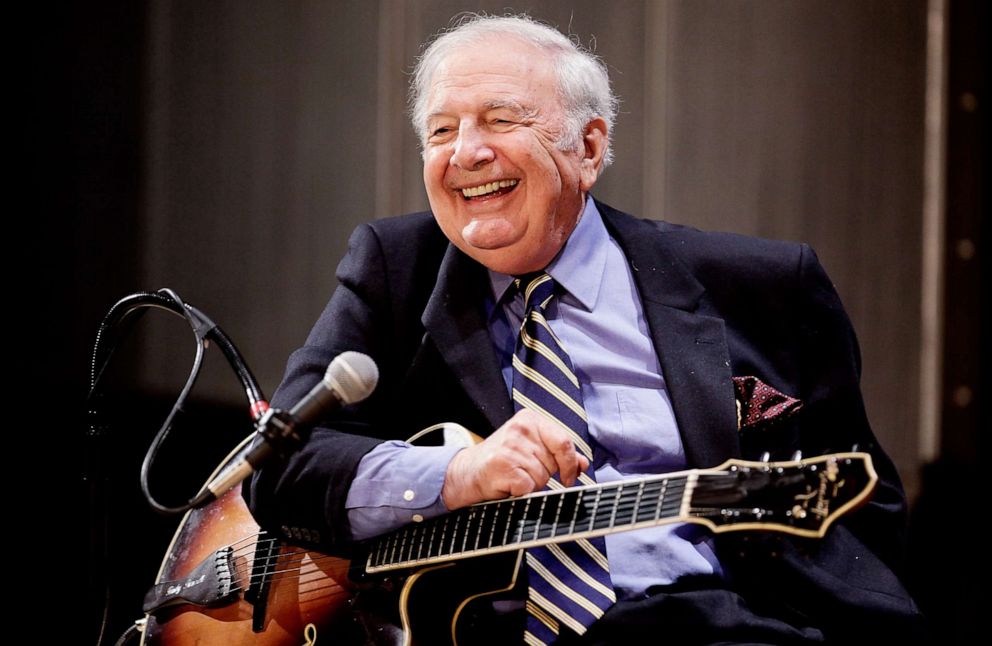
Bucky Pizzarelli, a celebrated jazz guitarist who collaborated with stars like Paul McCartney and Benny Goodman, died on April 1 in Saddle River, New Jersey. He was 94.
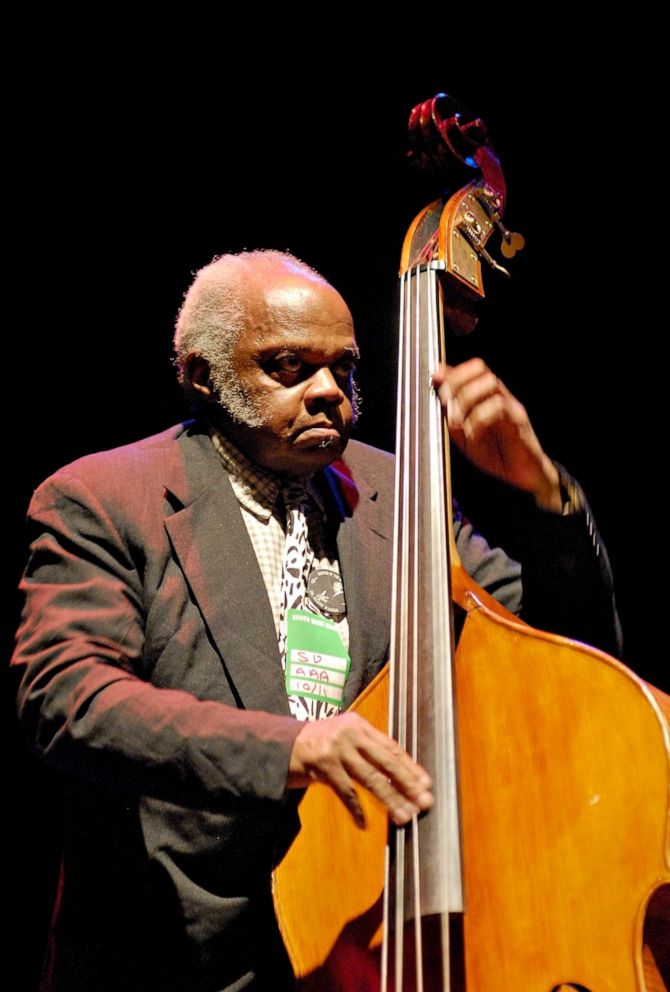
Henry Grimes, a renowned jazz bassist who played with greats like Benny Goodman, Sonny Rollins and Lee Konitz, died on April 15 at the Northern Manhattan Rehabilitation and Nursing Center in Harlem, New York. He was 84.
The jazz world took notice of a 22-year-old Grimes when he played at the 1958 Newport Jazz Festival. After falling on hard times, he dropped off the music scene in the 1970s before being discovered again by a social worker while he lived in Los Angeles. With the help of the community, he made a memorable comeback over the past two decades.
Konitz, a jazz saxophonist and composer whose storied career dates back to the 1940s, also died on April 15 in New York City. He was 92.
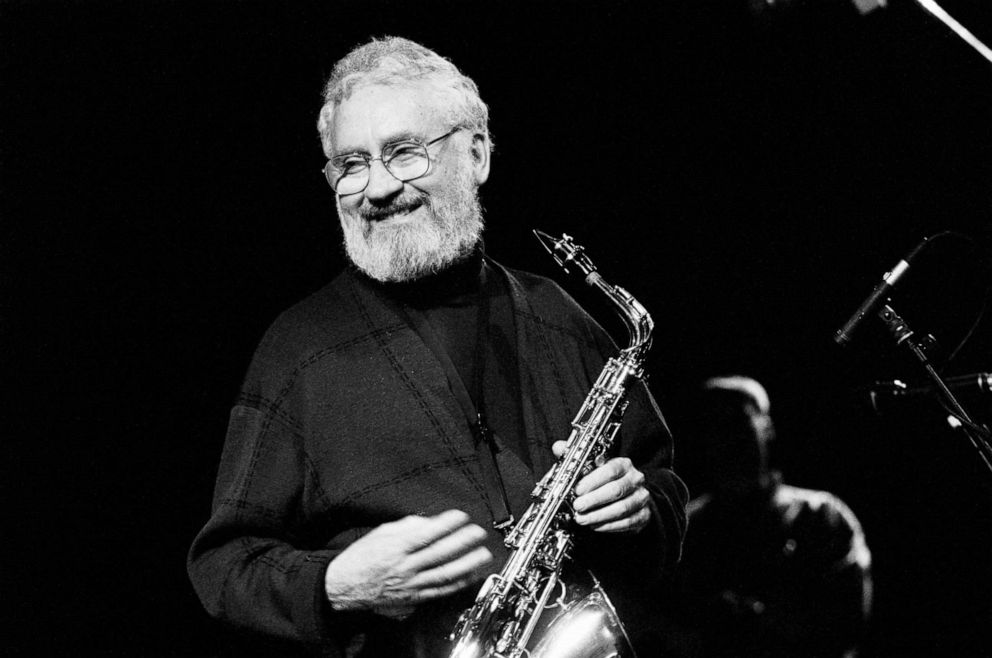
Manu Dibango, a Cameroonian jazz saxophonist and songwriter, who was known for fusing elements of jazz and funk with African beats, died on March 24 at age 86.
Dibango's track "Soul Makossa" has been sampled by artists like Kanye West and Michael Jackson.
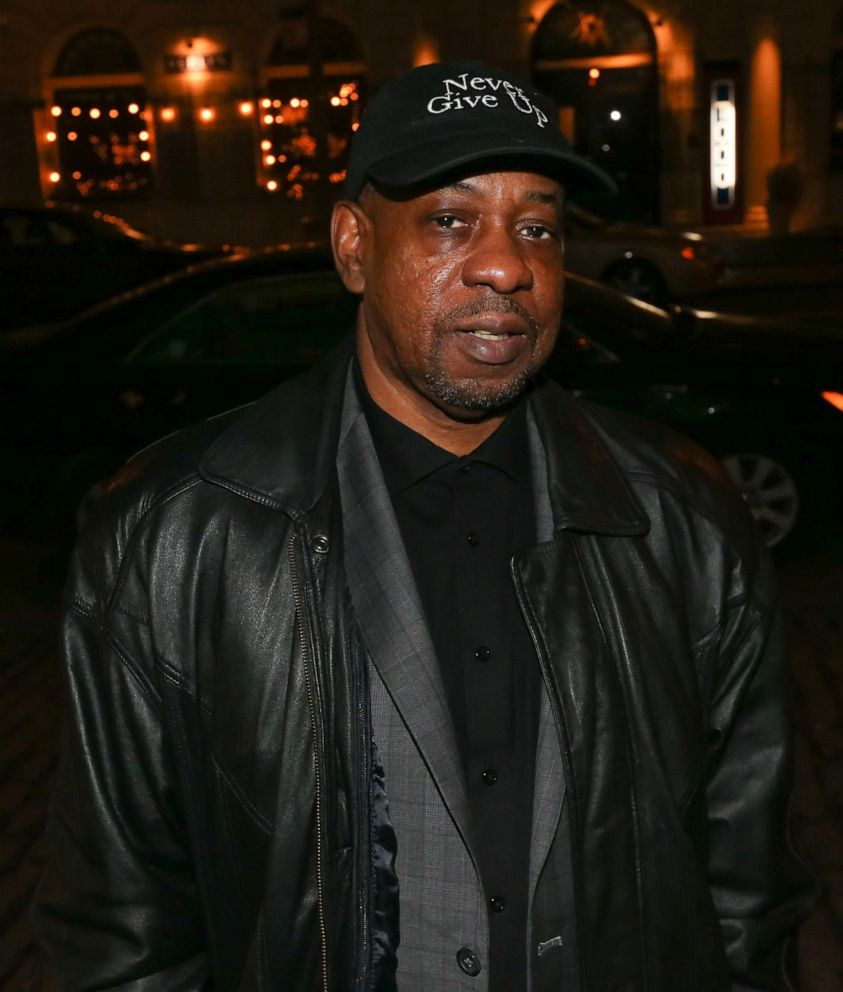
Onaje Allan Gumbs, a renowned jazz pianist, arranger and composer, who was known for fusing elements of R&B and jazz, died in a nursing home in Yonkers, New York, on April 6 at the age of 70. According to JFA, his wife Sandra Gumbs later died in the same nursing due to compilations with the virus.
Todd Barkan, a Grammy-winning jazz producer and "Jazz Master" as named by the National Endowment for the Arts, has seen it all, but said that nothing has been like COVID-19.
"They were great teachers and reachers and preachers in our music and their message is always with us. We have to live what they imparted to us. We have to live their lesson or we're not doing our job," the owner of the legendary jazz club The Keystone Korner told Phillips.
In an emotional moment, Jones read a list of those who died and reflected on his memories with each.
"I'm seeing stories. I'm saying Bootsie Barnes in Philadelphia when I was a grad student, and I would go up trying to play 'Cherokee' and he would tell me how sad I was," he said with a laugh. "I hear Onaje's voice on the phone when I recorded a song called 'Allison,' telling me that I have integrity because I didn't play a solo until the very end. And I see Lee Konitz walking into Dizzy's Club Coca Cola, just to hang out and eat a cheeseburger. And gosh, Ellis Marsalis. I see myself with a group of young musicians in San Francisco after we just left the stage and him telling us stories."
Petrucelli said that the loss has been so "painful" in the jazz community, as the human toll of the virus has been felt across the entire jazz and blues "ecosystem."
"In terms of the broader community associated with the music and with the foundation, you know, it's even more harrowing where we lost a beloved board member, for instance, named Steve Edwards. We've lost a club owner in Harlem. ... Sandra Gumbs, the wife of Onaje Allan Gumbs, passed away in the same nursing home that Onaje did. ... [We know] a promoter in Harlem who passed, we know regulars from clubs who have passed," he said.
And for musicians like Jones, who is teaching this music tradition to new generations, it is now up to him and others to keep the contributions of those legends alive.
"Jazz has gone through everything we've gone through as people. All of our highs, all of our lows. It expresses it with the note B flat, with the note E ... it's an honor to perform it, it's an honor to tell that story," he said.
ABC News' Becky Perlow and Patrick O'gara contributed to this report.
